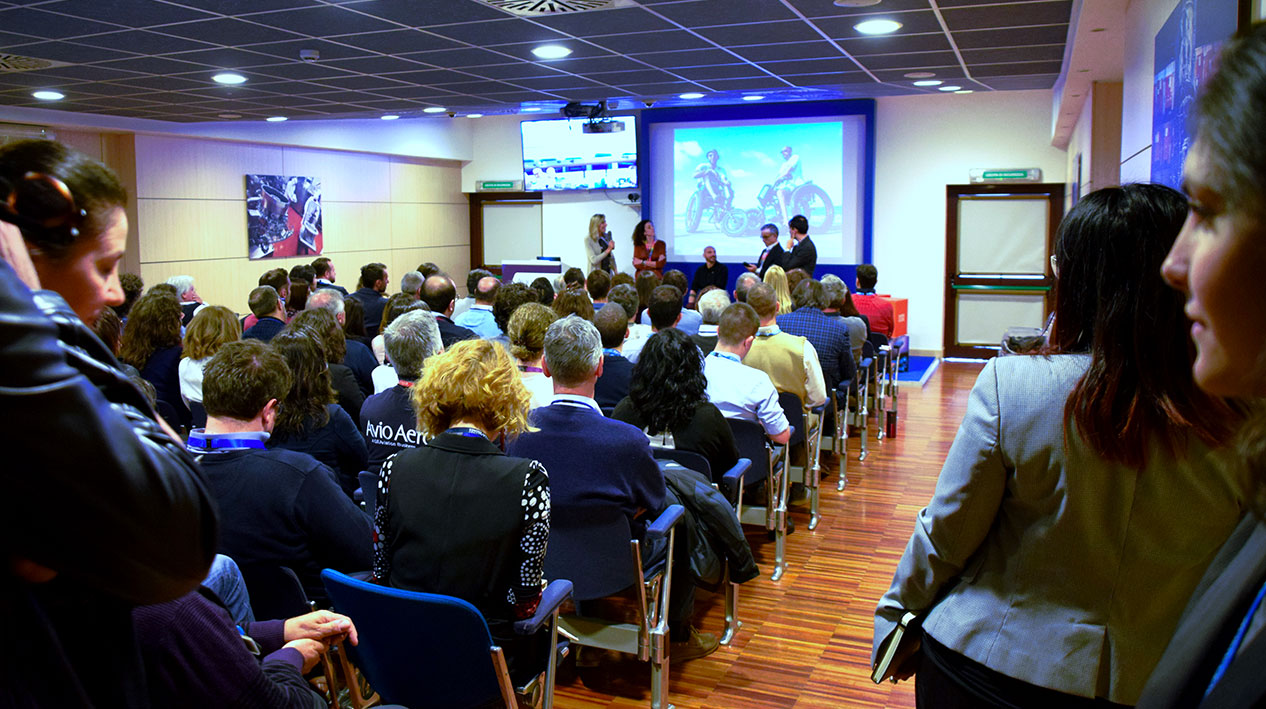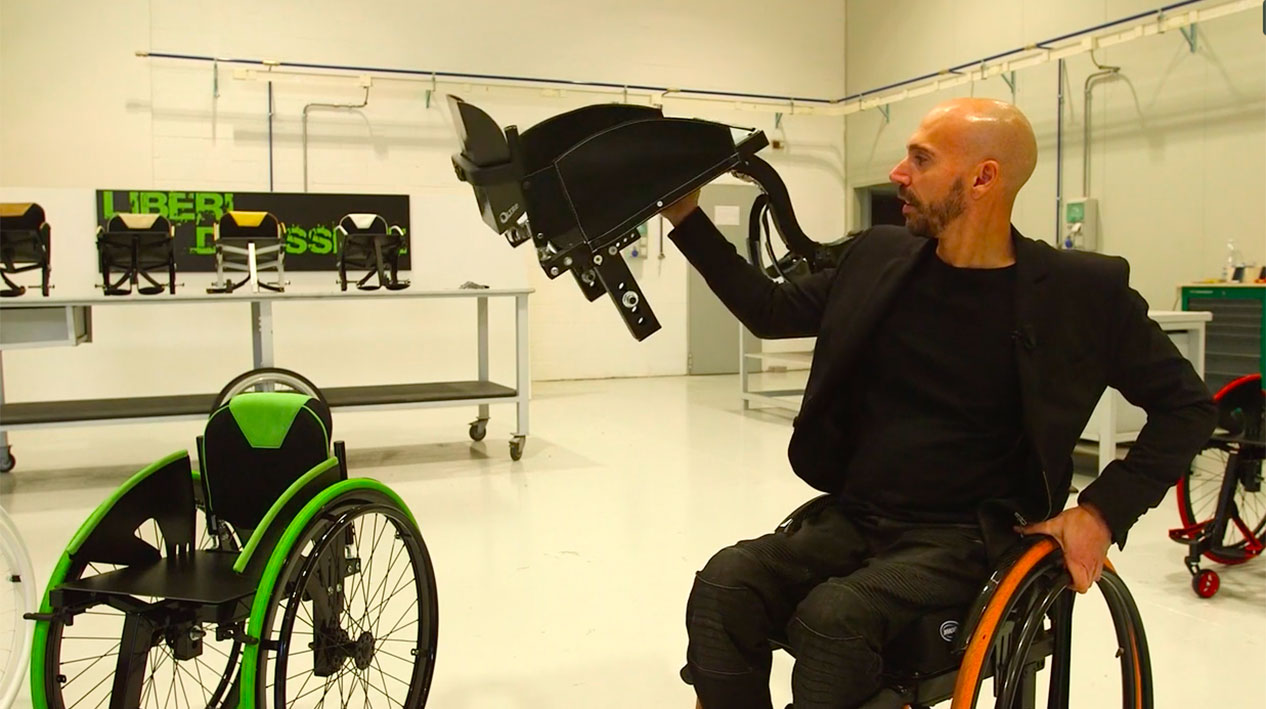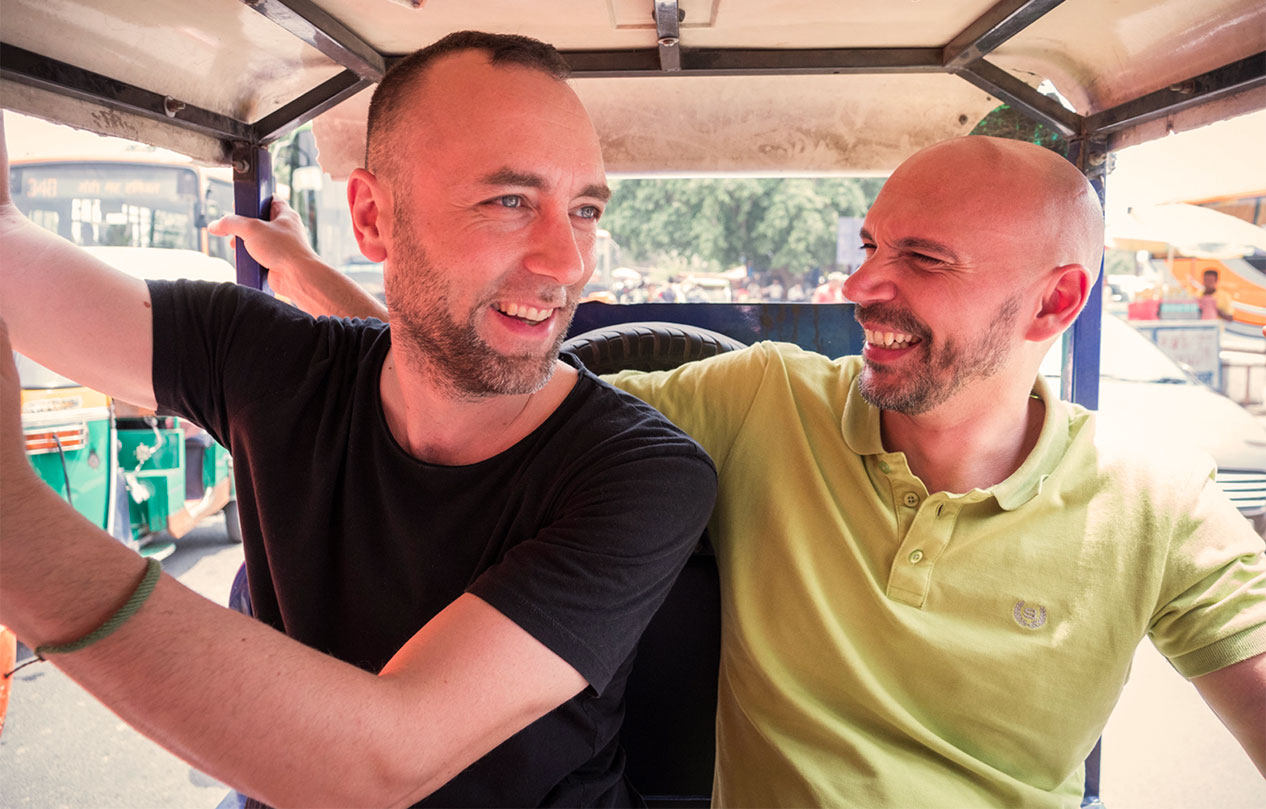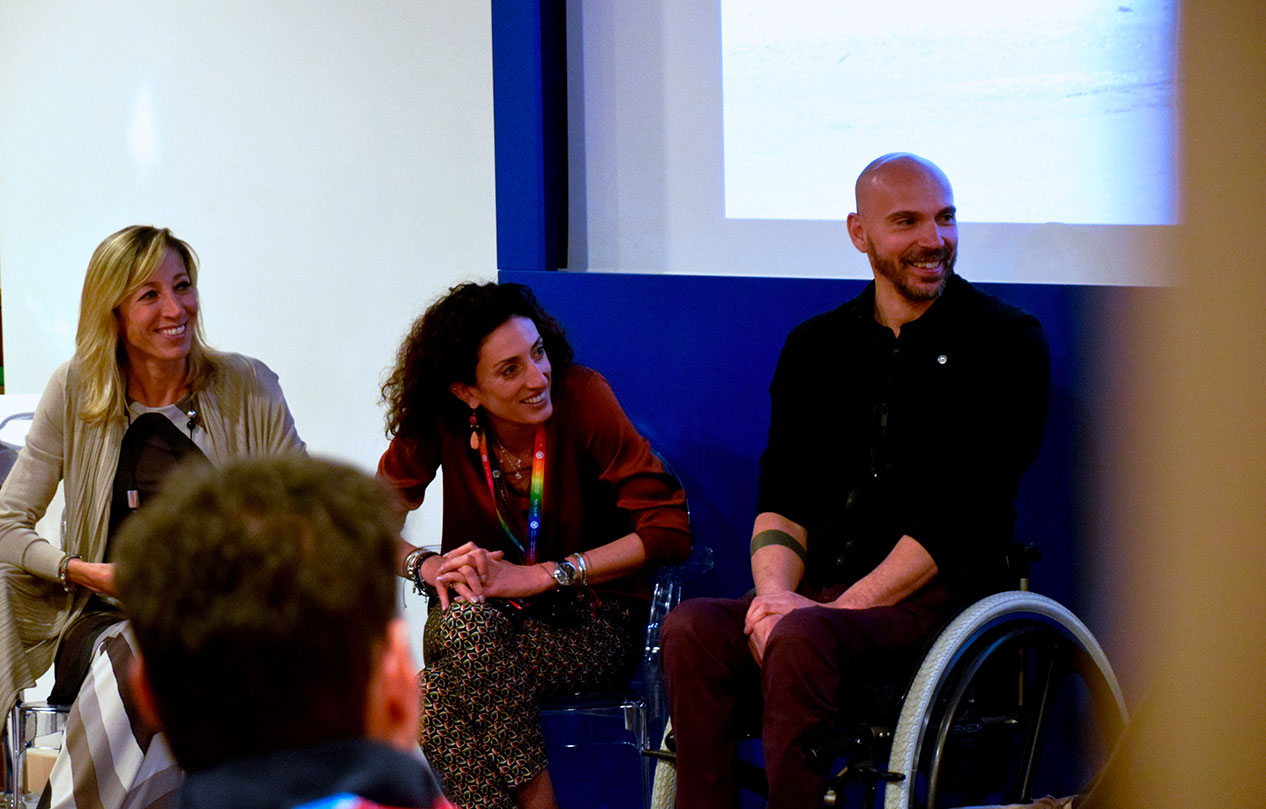Culture
The Power of Disability
Avio Aero's People with Disability Network kicks off, hosting a special guest who’s full of energy and a role model of very successful disabled entrepreneur and globetrotter.
May 2019
How can you accept being paralyzed at only 21-years old, in the prime of life? You start from the beginning, becoming a child again. You have to rediscover yourself and your own body, a new body. This drives the desire for autonomy. "Because in the end, life is the same, as are the dreams: to know the world, to love, and to travel."
Danilo Ragona, 41, is a successful designer, entrepreneur and travel-blogger who tells stories as seen from another dimension. Years ago, a car accident forced him into a wheelchair. But his strength of mind has prevailed and now, with his company "Able to enjoy", he designs, manufactures and markets futuristic wheelchairs. In addition to which, he tells of his adventures traveling the world in a blog initiated in a parallel project and accomplished with a special friend.
Stories like Danilo's are a source of great inspiration for Avio Aero, which has identified Diversity & Inclusion as a mission to create an increasingly inclusive and diverse work environment for its employees. "Disability is never a choice, just like sexual orientation. It is a fact and must be treated naturally and without judgment," says Carlamaria Tiburtini, D&I Leader for Avio Aero. "PDN, along with GLBTA, are the dearest Affinity Groups to me, while I hold to my heart everything I follow in terms of inclusion. For me, this is a way to improve our world."
On 5th May, at the Rivalta headquarters, Carlamaria Tiburtini led the event to launch the first Italian People with Disability Network (PDN). PDN is one of the GE Affinity Groups, those employee associations that globally, in every business and country where GE’s active, promote inclusion and all kinds of diversity. For Avio Aero, the PDN Leader is Selene Santacaterina and the sponsors are Nino Atzei and Alfredo Marin.
Danilo was the exceptional testimonial of the day and told employees in the auditorium and connected in streaming about his relationship with disability. "When I was 21, a car accident took away my leg mobility. Anyone who is told they are paralyzed would feel lost; but at that point, either they throw everything away or they decide to get back in the game. The fact that I was only 21 in my bad luck helped me a lot: at that age, everything is still possible. My personality and strong desire for independence helped me to accept this new life. And so I started over again: when I was 22 I went to live alone and enrolled in the Istituto Europeo di Design (IED), only 6 years later I designed my first wheelchair."
Danilo's initiative and determination at such a tragic time are extraordinary. And his entrepreneurial path is equally impressive, stemming from the same spirit of reaction to the tragedy, testifying that diversity can also be a determining factor for the success of a business, or in companies. "Danilo is force of nature," commented Carlamaria, the D&I Leader. "He is the incarnation of a lesson for all those who never get enough and are never happy. In its #gogogo, there is everything in the world we need. It is the ability to shed light where it is dark."
Danilo built the first wheelchair with his new company in 2008. "My mission was to overturn the concept of a wheelchair, transforming it from a simple support for the disabled to a design object with a unique aesthetic connotation. First, in 2012 I won the prestigious Compasso D'Oro Design Award and then I started a collaboration with Italy Independent: that made the wheelchair a fashion element. In 2017, we participated in the Modelle & Rotelle event during Milan Fashion Week: a fashion show in which models parade with our wheelchairs."
"7 years after the accident, I designed my first wheelchair: my mission was to overturn the concept of a wheelchair, transforming it from a simple support for the disabled to a unique design object"
But Danilo has not stopped after creating his company and, thanks to a friendship born in the halls of the Spinal Unit of the Hospital of Turin more than 20 years earlier, in 2015 he founded the travel blog Viaggio Italia with Luca (architect and musician from Turin). It is a project supported by several companies that allows the two young men to travel the world and tell the story from their perspective. But above all, it allows them to send a very important message to those like them, who are in a wheelchair: you can do it.
"In the world there are more than 1 billion people with disabilities, which doubles if you consider those who remain conditioned by this situation because they live with those who suffer a disability (even severe) and then have to give up even very simple things, such as a breakfast somewhere outside. Viaggio Italia aims to show that living with a disability is possible, as it is possible to write new stories and fall in love with new dreams. 2019 is a year full of new products. We have several trips scheduled. In July, we are going to Bali where we will do a reportage for the TV show ‘Kilimangiaro' on RAI 3. In October we are going to Japan," says Danilo enthusiastically.
"However, this year the key topic for us is awareness: we are going around the Spinal Units inside hospitals across Italy to tell our experience and spread a message out to those who are in a very delicate phase of life."
Danilo is very realistic when he talks about the relationship between society and people with disabilities: "We disabled people are a cost for the state, just like all other citizens, but we cannot be full resources yet. There are still too many obstacles that do not allow us disabled people simply to go to eat a pizza in a certain place or to book a train without a week's notice. Considering that today we can land on Mars to take pictures, this is not a technology matter, but a cultural one. Breaking down barriers would generate natural business growth."
Companies, such as Avio Aero, that face the world of disability with groups of employees focusing on the topic of disability are a positive sign in terms of raising awareness of the inclusion of diversity. But as Danilo points out, "It is essential to intensify the dissemination of such messages and to do so you need to know how to listen." So you get out of your daily box, out of the office and you increase receptivity and sensitivity to diversity."
The last words Danilo shares with people like him, who are characterized by a specific diversity and about to approach the working world, "Diversity is a personal matter. If you feel different from the rest of the world you cannot be at peace. You think of any prejudices against yourself, even if only for a glance received. So we have to work on ourselves and eliminate this mental block."
"Diversity is a personal matter. If you feel different from the rest of the world you cannot be at peace. First, we have to work on ourselves and eliminate this mental block."
Then he moved from his inner world to the world that surrounds the disabled. "There are places where life in wheelchairs is more complicated, especially where there is a lack of civic sense. It sounds like a trivial detail, but if a car is parked on a sidewalk, for us that is a problem. In these cases, it is necessary to make choices, for example to consider moving elsewhere. But this choice is not very different from that of, for example, a student who migrates elsewhere to study at a more prestigious university. The motivations change but the dynamics and the desire for accessibility to a better life remain the same. It is an opportunity for growth, not a personal defeat."








